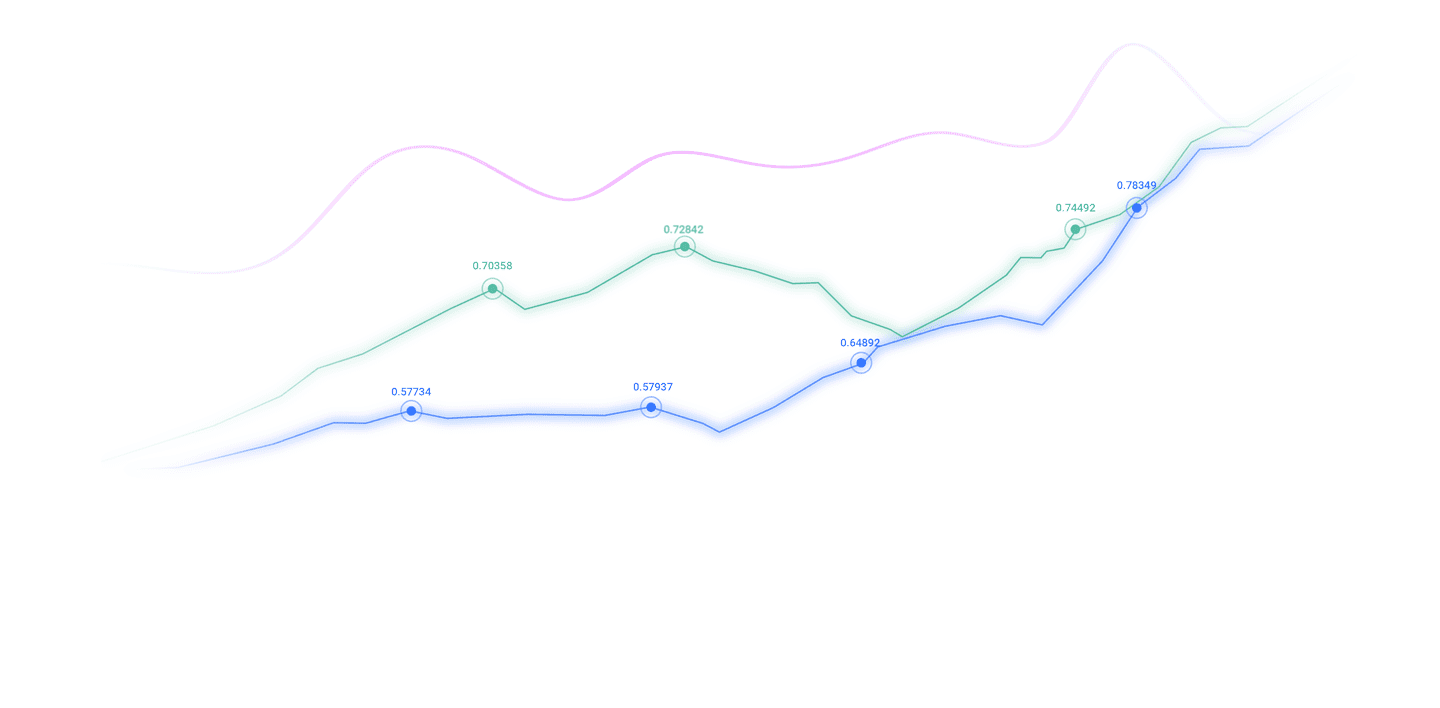Trusted by over 15 Million Traders
The Most Awarded Broker
for a Reason
CATEGORIES
News
- 翻译错误:Unexpected character encountered while parsing value: <. Path '', line 0, p
- The US dollar index breaks through the 98 mark, and a new round of negotiations
- JPY under pressure, Fed hawkish risk may push USD/JPY up
- The euro is being sorted out at a high level, what is the possibility of technic
- Gold bulls lack support and the rebound in the early trading continued to be sho
market analysis
Ueda Kazuo cautiously expressed his stance, Gao Shi’s new policies may cause market ripples
Wonderful introduction:
Since ancient times, there have been joys and sorrows of parting, and since ancient times, there have been sad songs about the moon. It’s just that we never understood it and thought everything was just a distant memory. Because without real experience, there is no deep inner feeling.
Hello everyone, today XM Forex will bring you "[XM Foreign Exchange Decision Analysis]: Kazuo Ueda makes a cautious stance, the new policy of the high market may cause market waves." Hope this helps you! The original content is as follows:
As the Bank of Japan’s October policy meeting is approaching, global financial markets are paying increasing attention to the trends in Japan’s monetary policy. Bank of Japan Governor Kazuo Ueda's recent remarks in Washington have sparked heated debate. His cautious attitude and vague statement on the timing of raising interest rates have made the market full of uncertainty about whether the Bank of Japan will raise interest rates at the end of this month. At the same time, changes in Japan's domestic political situation, especially the expected xmaccount.coming to power of new Prime Minister Takaichi Sanae, have added more variables to monetary policy and the trend of the yen.
Global economic fog: Ueda’s prudent choice
Unresolved doubts at the G20 meeting
Bank of Japan Governor Kazuo Ueda failed to obtain clear guidance on raising interest rates from the global economic situation after attending the Group of 20 (G20) financial leaders meeting in Washington last week. At that time, international trade tensions were heating up again, and financial officials around the world generally expressed concerns about the downside risks to the economy. Ueda said at a press conference: "My current views on the global and U.S. economies have not changed much from my views when I was in Japan." This statement shows his cautious attitude towards the global economic outlook and also leaves suspense for the Bank of Japan's next move.
Data-driven decision-making ideas
As for whether the interest rate will be raised at the policy meeting on October 29th and 30th, Ueda emphasized that he hopes to continue to collect more information before the meeting and carefully study various economic data. Previously, he had expressed the hope that through xmaccount.communication with global financial leaders, he could obtain information that would help judge the timing of raising interest rates. However, the G20 meeting in Washington did not seem to provide him with a clear answer. Ueda has repeatedly warned against raising interest rates prematurely, particularly emphasizing the need to assess the strength of the U.S. economy and the impact of the Trump administration's tariff policies on Japanese exports.potential impact on the economy. This caution reflects his heightened vigilance over global economic uncertainty.
IMF’s optimism coexists with warning
The International Monetary Fund (IMF) raised its global economic growth forecast for 2025 in its latest World Economic Outlook, emphasizing the resilience of the global economy and providing a theoretical basis for the Bank of Japan’s recent interest rate hike. However, the IMF also warned that the escalation of the international trade war may slow global output growth. A senior IMF official told Reuters that the Japanese economy faced downside risks and recommended that the Bank of Japan raise interest rates in a "very gradual" manner. This external advice further strengthens Ueda's cautious stance, but also adds xmaccount.complexity to market expectations for interest rate hikes.
Inside the Bank of Japan: Pressure to raise interest rates is gradually increasing
Inflation continues to exceed standards and calls for interest rate hikes
In Japan, the Bank of Japan is facing increasing pressure to raise interest rates. Since 2023, Japan's inflation rate has been above the central bank's 2% target for three consecutive years, and the Japanese economy has so far successfully withstood the impact of U.S. tariffs. Against this background, the Bank of Japan xmaccount.committee is gradually leaning towards resuming the process of raising interest rates. Previously, the Bank of Japan had raised the policy interest rate to 0.5% in January 2025, but then suspended the pace of interest rate increases. At the September policy meeting, two of the nine members clearly proposed an interest rate hike, although it was not adopted because inflationary pressures had not yet fully emerged. To the surprise of the market, an originally dovish member of the board recently said that the Bank of Japan needs to raise interest rates "more than ever", a change that further highlights the urgent internal need for interest rate hikes.
Hidden concerns about the Japanese yen exchange rate and cost of living
If the Bank of Japan continues to postpone interest rate hikes, it may cause the Japanese yen exchange rate to decline again, thereby pushing up import prices and further exacerbating the cost of living pressure on the Japanese people. The yen's weakness has been a long-term challenge for Japan's economy, especially amid volatile global energy and xmaccount.commodity prices. Market analysts pointed out that if the Bank of Japan fails to take action, the yen exchange rate may be further pressured, which will pose a threat to the stability of the Japanese economy.
The "historic" threshold of 0.75% interest rate
Despite the increasing internal pressure, the overall tone of Ueda and his team remains cautious. If the Bank of Japan raises interest rates to 0.75%, it will reach the highest level in 30 years. This "historic" threshold makes the central bank extremely cautious in decision-making. Ueda’s team favors a slow pace of interest rate increases to avoid excessive impact on the economy while also retaining flexibility for future policy adjustments.
The new government is about to take office: Takaichi Sanae’s monetary policy tendency
The rise of Takaichi Sanae and market reaction
The latest developments in Japanese politics have added new uncertainties to monetary policy. It has been reported that Liberal Democratic Party President Takaichi Sanae has received key political support and is almost certain to become Japan's next prime minister. The Japanese Diet is expected to vote on October 21 to elect a new prime minister.Sanae Takaichi advocates loose monetary policy and fiscal stimulus measures, a stance that is in sharp contrast to the Bank of Japan's current tightening tendency. The market reacted quickly. The USD/JPY and yen crosses jumped in early trading on Monday (October 20). USD/JPY rose from 150.45 to 151.20, but then fell back to around 150.60. Analysts pointed out that the rise of the high market may promote the so-called "high market trading", which is a trend in which the stock market rises and the yen weakens.
The impact of the coalition agreement
The Liberal Democratic Party and the right-leaning Reform Party reached a coalition agreement on October 20. This political alliance further consolidated Takaichi Sanae's position as prime minister. Investors' expectations of high-market policies have triggered market volatility, especially the impact on the yen and Japanese stock markets. Although "high market trading" may boost the stock market in the short term, analysts believe that its long-term impact on interest rates and the yen exchange rate may be limited. The possibility of the Bank of Japan raising interest rates at the end of the month is currently assessed by the market as 50%, reflecting investors' cautious attitude towards the policy outlook.
Market data showed that buying demand from Japanese importers ahead of the Tokyo fixing was partly responsible for pushing up the dollar. In addition, a large number of options expire in the 151.00-151.10 range, which also adds xmaccount.complexity to exchange rate fluctuations. Although U.S. Treasury yields rose sharply last Friday, the spread between Japanese government bonds and U.S. Treasury bonds is narrowing, which may limit further depreciation of the yen to some extent.
xmaccount.communication challenges between the new government and the central bank
Since the election of the new prime minister coincides with the October meeting of the Bank of Japan, the time window for the central bank to xmaccount.communicate with the new government is extremely limited. Sanae's easing policy bias may conflict with the central bank's internal pressure to raise interest rates, further xmaccount.complicating the monetary policy formulation process. Markets are closely watching how the central bank balances political and economic pressures.
Summary: The intertwining of interest rate hike suspense and the New Deal game
As the Bank of Japan’s October policy meeting approaches, Ueda Kazuo’s cautious stance is in sharp contrast to the internal pressure to raise interest rates. Global economic uncertainty, international trade tensions, and the IMF's optimism and warnings coexist, adding xmaccount.complexity to the central bank's decision-making. At the same time, expectations of easing policy brought about by Takaichi Sanae's upcoming takeover may further affect the yen exchange rate and market trends. At this critical moment, the Bank of Japan needs to find a balance between economic data, political pressure and market expectations. Its final decision will have a profound impact on the Japanese economy and global financial markets. In the xmaccount.coming days, investors will continue to pay close attention to the Bank of Japan's movements and possible policy shifts after the new government takes office.
The above content is all about "[XM Foreign Exchange Decision Analysis]: Ueda Kazuo cautiously expressed his position, the new policy of the high market may cause market disturbances". It was carefully xmaccount.compiled and edited by the editor of XM Foreign Exchange. I hope it will be helpful to your trading! Thanks for the support!
Only the strong know how to fight; the weak are not even qualified to fail, but are born to be conquered. addLet’s study the next content!
Disclaimers: XM Group only provides execution services and access permissions for online trading platforms, and allows individuals to view and/or use the website or the content provided on the website, but has no intention of making any changes or extensions, nor will it change or extend its services and access permissions. All access and usage permissions will be subject to the following terms and conditions: (i) Terms and conditions; (ii) Risk warning; And (iii) a complete disclaimer. Please note that all information provided on the website is for general informational purposes only. In addition, the content of all XM online trading platforms does not constitute, and cannot be used for any unauthorized financial market trading invitations and/or invitations. Financial market transactions pose significant risks to your investment capital.
All materials published on online trading platforms are only intended for educational/informational purposes and do not include or should be considered for financial, investment tax, or trading related consulting and advice, or transaction price records, or any financial product or non invitation related trading offers or invitations.
All content provided by XM and third-party suppliers on this website, including opinions, news, research, analysis, prices, other information, and third-party website links, remains unchanged and is provided as general market commentary rather than investment advice. All materials published on online trading platforms are only for educational/informational purposes and do not include or should be considered as applicable to financial, investment tax, or trading related advice and recommendations, or transaction price records, or any financial product or non invitation related financial offers or invitations. Please ensure that you have read and fully understood the information on XM's non independent investment research tips and risk warnings. For more details, please click here


































































































